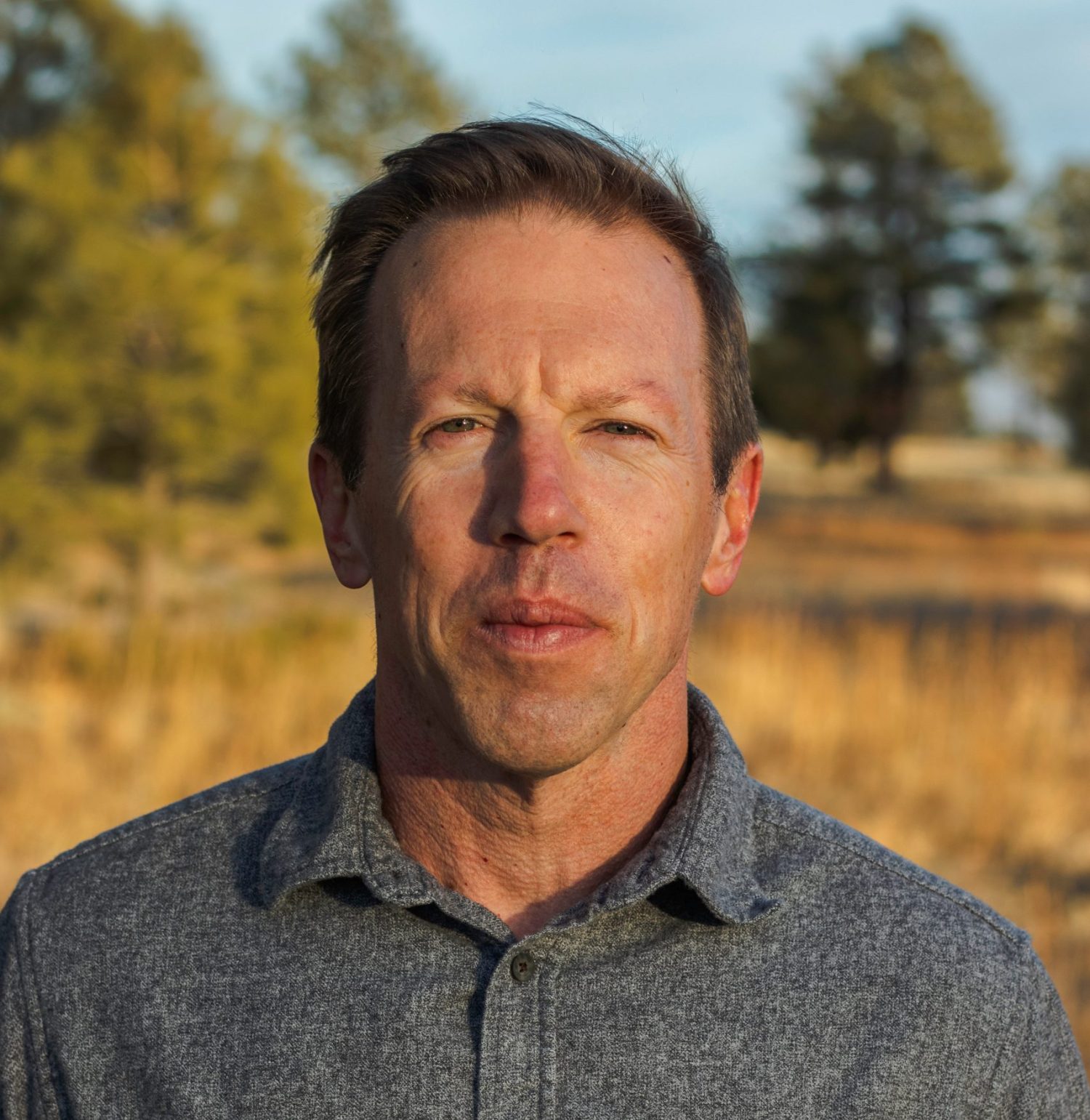
I nearly dropped Sherwin Bitsui’s poetry class before it even started.
I was in my final semester, and I figured, why start something new at the very end? I didn’t plan on writing poetry. Ever. It seemed like another world—an easier world—than the kind of writing I do, the kind of writing I did. But I signed up anyway, partly out of curiosity, and partly because I didn’t want to look back and regret not giving it a try, to either confirm my suspicions or prove myself wrong
I didn’t expect it to change everything.
I’d considered it once before, back in my first semester. Now I wonder what would’ve happened if I’d taken it then, whether it might have changed the shape of everything that followed. But that’s the cup-half-empty version. Truth is, I took it when I was supposed to, according to God’s plan. When I was ready. And it changed the way I write—reaching into the future and helping me rewrite the past.
Bitsui made me slow down. To consider the weight of each word—not only what I was saying, but how. He taught me to read and listen differently, to leave room for silence, and to ask myself, Is this the best way to say it? Does this word, this line, this breath, earn its place?
That question wasn’t confined to the poems; it followed me into every sentence, especially in nonfiction.
My curiosity about nonfiction began earlier, back in Iowa, encouraged by my rhetoric instructor Dr. Dorothy Giannakourus. She introduced our class to Evicted, by Matthew Desmond, a book that remains one of my favorites. In it, Desmond follows impoverished people and families in Milwaukee as they struggle to keep housing, exposing the human cost of poverty and eviction in America. At the time, I was focused on fiction writing—I hadn’t even heard of creative nonfiction as a genre. She nudged me toward it, suggesting I talk with graduates from the University of Iowa’s nonfiction program.
So even though poetry came later, it rewired how I think about nonfiction. Or maybe it gave me the questions I hadn’t known I was already asking. Since then, while I started with and still write fiction, creative nonfiction has quietly edged it out as my primary focus. That shift felt like a new path, but now I see it was part of the same journey all along. Just another turn in the road I was already on. Now, when I approach the page, I don’t want to only write about what happened; I want to make every line sing.
And lately, the same questions that led me to poetry pressed me further, somewhere newer still: into another language.

I didn’t set out to learn Spanish. It wasn’t part of my plan. I didn’t have enough time. It was too late. You can’t learn a new language as an adult. All the excuses that pile up when you’re trying to avoid really delving into something you know you’re supposed to do. I never imagined I’d be reading, writing, or thinking in another language. For years, it was just a quiet interest, something on the side. Now, I study Spanish every day—not just vocabulary or grammar, but literature, music, podcasts, histories. I’m learning about different regions and cultures, and slowly, the language is becoming part of how I think. I’m not fluent yet, but I will be. And fluency isn’t really the point.
The more I study Spanish, the more I understand: no one ever finishes learning a language. I’m still learning English. I’ll always be learning it. Language isn’t a box you check off. It’s alive. It shifts. There’s always another way to speak, to listen, to say the thing more clearly, more beautifully.
The poetry class. The shift to nonfiction. The school I almost overlooked. The language I wasn’t born into and never planned to pursue. None of them were part of the original roadmap. But each one opened something. Each one became part of the way forward.
I believe that’s how we find the truth.
So much of life happens when we’re on our way to somewhere else. The most meaningful turns often arrive softly, unannounced: in a class we almost didn’t take, a city we hadn’t meant to fall in love with, a language we didn’t expect to need. We think we’re just passing through, but sometimes that’s exactly where life finds us.
I’ve learned that it’s good to have plans, but that it’s just as important to leave room for the unexpected, the uninvited, the unfinished.
Because sometimes the detour is the path.

